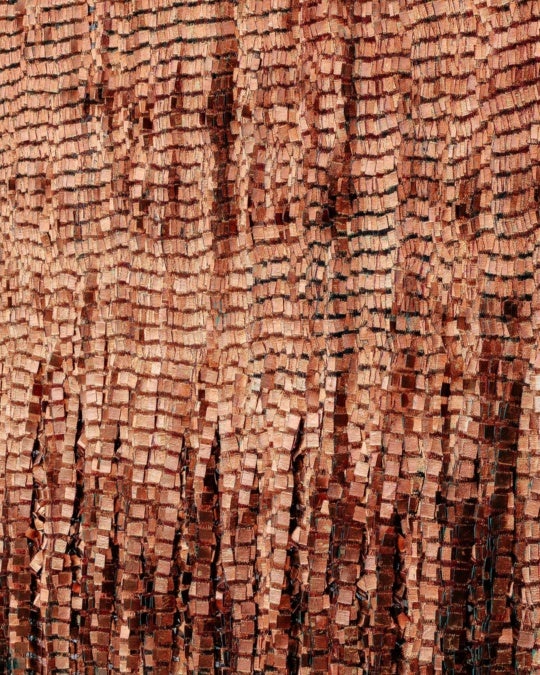
In the tradition of miserable childhood literature from Dickens to Mary Karr to Dorothy Allison and Maya Angelou, Jeannette Walls’s 2005 memoir The Glass Castle was a heart-stopper: a tale of extreme family dysfunction mixed up with a painful streak of bittersweet love for the wounded and wounding people who made you.
Your tolerance for the film version of The Glass Castle, which opens today, will undoubtedly depend on how long you can stand to stew in the velvet trap of familial suffering. Whether you find insight into the complex undertow of family psychology in The Glass Castle or just a wet, messy wallow in an endless litany of drunkenness followed by regret and redemption is a matter of inclination or constitution. Many will see traces of their own childhood sensations in the film; feelings of entrapment, tyrannical adults, injustice and powerlessness that can mark even happy upbringings. Because despite its flaws, The Glass Castle—thanks to strong performances by the two young actresses playing Jeannette as a child and young girl—connects powerfully to what it feels like to be a child when adults make all the rules.

The film centers on the working class bohemian existence of possibly brilliant but undoubtedly shiftless Rex Walls (Woody Harrelson), his maddeningly passive, self-absorbed wife Rose Mary (Naomi Watts) and their four children. With the right set of friends and less anti-social attitudes the Walls might have been drop-out hippie commune dwellers, but their blue collar upbringing and possible mental illness give their rebellion a painful, isolated dimension. It’s a footloose and reckless life defined by trouble with the law, swindling, poverty, hunger, terrible housing and a patriarch who finds his life’s work in the bottom of a whiskey bottle. Forced to make her own lunch while her self-absorbed mother is busy painting, Jeannette suffers severe burns, bearing a lifelong scar on her stomach, a tattoo of her rotten childhood, just one example of bad parenting and its victims.
The odd but strangely beguiling mismatched lovers at the heart of director Destin Daniel Cretton‘s film adaptation of Jeannette Walls’s beloved memoir are not dreamy, selfish painter Rose Mary and her brilliant but stunted, weak-willed husband. It’s the love affair between Rex and his oldest daughter Jeannette (Chandler Head as the child, Ella Anderson as a young girl and Brie Larson, as an adult) whose dreams he both fuels and dashes. Father and daughter feed each other admiration and love and a spirit of adventure, and that complex relationship defines her, for better and for worse. The story opens with Jeannette’s grown-up life as a New York magazine gossip columnist and then flashes back to the childhood that scarred her.

Suckled on his own damaged childhood of shame and abuse, Rex is a broken man with delusions of greatness. Part of that vision includes building a fantasy glass castle for his family that becomes a symbol of his unrealized potential and his childlike yearning for an escape from his own brutal past. One of the best gifts the real-life Rex ever gave Jeannette was the operating metaphor for her memoir: a beautiful but breakable home you can see out of, but is difficult to escape.
Harrelson’s performance captures Rex’s conflicted nature: his jealousy of his children’s freedom when they are old enough to leave, but also his desire to make sure Jeannette is tough enough to withstand what life throws her way. He’s both damaged and damaging and Harrelson shows the raging iconoclast and the frightened kid co-existing in his burly flesh.
Though his wife is the artist, it’s hard not to see the flickering flame of artistic potential in Rex, a damaged parallel to Viggo Mortensen’s countercultural, nomadic father in Captain Fantastic, who offered a happier take on visionary dads.
For a time Rex’s kindred spirits are his own children. Their youth makes them as dreamy and susceptible to what-could-be as their father, and at times, Rex’s sense of adventure and recklessness is enchanting—the family camps in the desert, wolf-howl at each other in greeting and stage elaborate pranks to avoid pesky realities like paying a hospital bill. But the luster wears off as Jeannette and her siblings get older and fantasy is replaced by grim reality. The lack of food, stability and a decent home are revealed to be not bohemian joie de vivre and enchantment, but their father’s haunted legacy: the demons he isn’t able to get out from under. With their shared heads of copper hair, resourcefulness and budding cynicism born from too much disappointment, Jeannette and her two sisters and brother are the magical beings of children’s stories, The Boxcar Children and plucky Where the Lilies Bloom survivors who through wit and pluck, escape the miseries of poverty and abuse.
Though mainstream Hollywood often likes to foist the fairy tale that outsiders and eccentrics are life’s underdog heroes, The Glass Castle offers a harsher truth, showing that heartache and disappointment are more often the harvest for living outside society’s boundaries. You can see Rex’s brethren in documentaries from Crumb to Grey Gardens, Tierney Gearon’s The Mother Project and Cutie and the Boxer. In the latter, the creativity and potential of artist Noriko and her son has been similarly sabotaged, doomed by her older, drunkard artist husband Ushio Shinohara.
The ultimate truth of The Glass Castle is something many of us have seen firsthand in our own families and friends: that some people are doomed by their life experiences and some use those same shitty circumstances as the fertilizer that empowers them to grow and move on.
Far from a perfect film, The Glass Castle is truthful often enough to balance its efforts to resolve some of Jeannette’s childhood horrors in a gloss of redemption and love. If director Cretton doesn’t exactly capture the intensity and grinding, inescapable feeling of desperation and entrapment in Jeannette Walls’s memoir, his film does convey some of the spirit, and a sense that our childhoods—the good and the bad—make us who we are.




